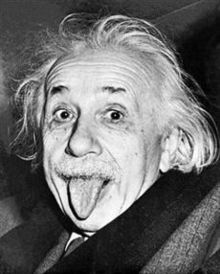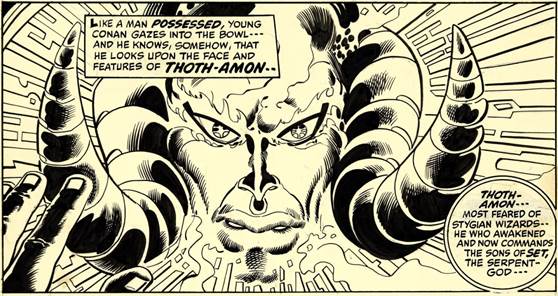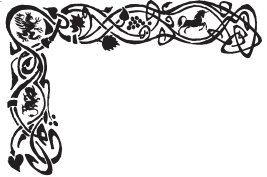The prophecies of Rachel, verse 50. Girded by the revelations of his time in the vastness of space, the entity became quite cocky, and sauntered along to the rock of ages, where Rachel had stripped to a mere halter and dungarees, her rippled back bathed in sweat from her archaeological exertions. She was propped on the rim of the rock nibbling on a pomegranate.
“So you’re back, from outer space”, she sang mockingly.
“You’re a lady, I’m a man”, was his throaty rejoinder, a romantic Peter Skellern number from the dog days.
“I’m a woman, buster” she said in hackneyed fashion. “Why are you staring? Ain’t you ever seen a woman’s naked shoulders?”
“In my dreams you are a warrior maiden who, with a Brythunian blade, can dislodge a man’s head with a subtle twist of shoulders and hips.”
This speech threw Rachel for six. Her eyes widened, then became narrow slits.
“How’d you know this was a Brythunian city-state? You’re scaring me, buster!”
“Dreams are empathic. I had an epiphany up in space. You, me, the city, the kites circling above.. take my hand.”
As if in a dream, Rachel uncoiled herself upwards and took his outstretched paw. Both gazed over the slumbering spires.
“Here we stand, on the rock of ages.”
“Yes, here we stand.”
(to be continued)
Byron, Childe Harold - see Aspects of Society 1
To Ianthe (dedication to 13 year old Lady Charlotte Harley, verse 5)
Oh! let that eye, which, wild as the Gazelle's,
Now brightly bold or beautifully shy,
Wins as it wanders, dazzles where it dwells, 30
Glance o'er this page; nor to my verse deny
That smile for which my breast might vainly sigh,
Could I to thee be ever more than friend:
This much, dear maid, accord; nor question why
To one so young my strain I would commend,
But bid me with my wreath one matchless lily blend.
The romantic aura Byron conjures to the beauty of the lyre is not of fact nor of fiction for it is addressed not to the head but to the heart. The spirit it evokes is not of Apollo – the sungod – but of Artemis. Sister to ruined, ravaged history. If Apollo is vision – bold and impetuous – the Muses are memories breathed on ruined stones. As he plodded over the shambolic morass of history on Aegean shores
Canto 1, Verse 1
Oh, thou! in Hellas deem'd of heavenly birth,
Muse! form'd or fabled at the minstrel's will!
Since shamed full oft by later lyres on earth,
Mine dares not call thee from thy sacred hill:
Yet there I've wander'd by thy vaunted rill;
Yes! sigh'd o'er Delphi's long deserted shrine,
Where, save that feeble fountain, all is still;
Nor mote my shell awake the weary Nine
To grace so plain a tale -- this lowly lay of mine.
In fact, the success of the poem was unprecedented, awakening from the bare stones of ages the slumbering spirits of yore (the same spirits that were later to infect Nietzsche). I suppose you get the message? This is the same spirit that Howard evokes in dreamlike prose. Even the adobe walls of his native Texan forts he peoples with long gone men.
In the world of time and space, ghosts inhabit ruins, ready for the poet’s hand to inject them with life. The past lives again through the poet’s Muse; the dead walls throb with sound and colour. Poetry of this order can kick ass like no one knows. After all, the King James Bible is poetry.
A Texan landscape of rolling hills can conjure Howard’s “Cimmeria” and from that a world bathed in blood and battle, baleful love and monlit vistasz. From something fairly shambolic come entire vistas. This is the land of Artemis, where lichen and byre revive tumbling walls.
Contrary to science (Apollo) this land is not entropic, it is cyclical and dies to be reborn. This is the land not just of Hyboria, but of romantic poetry sprung from the loins of Byron, experienced through primal rhythms.
..nor question why
To one so young my strain I would commend,
But bid me with my wreath one matchless lily blend.
From Byron’s dedication to 13 year old Lady Charlotte Harley (see top) “guileless beyond hope’s imagining”.. To the romantic poet, matchless grace of womanly form is what they live and die for because they belong to the world of elemental force that connects us to myth.
A lot of this you can apply to the force of Howard’s prose that rings like troubadours of old singing of heroes and maids “from sea to shining sea” (quoting Guthrie). The gloom that haunts these stories is borne of time-lost time. Such tales are songs of lusty throats and speak of a world not just in the sense of fantasy. After all, Howard’s sword & sorcery is mainly realistic scenes of action with the sorcery as a malevolence that seeks to entrap or trick the steel-shod warrior.
No, it is a world where the warrior is very much at ease, one the wizard seeks to usurp. Our world is the exact reverse; the trickster and the wizard are very much at home and the warrior is at a loose end. Just imagine we are in Hyboria; this image of Einstein can change its aspect..

.. the tongue representing the worship of Set, the serpent god of Stygia. You’re saying it’s playfulness? Yes, yes, I know that, but from a Hyborian context, the heroic warrior – body – is opposed to the world-devouring ego of

I’m not saying Einstein actually worshipped the serpent-god; I’m saying that the mind is a fallible instrument; it’s attached to the body via the throat (Pictorial 1 Hyborian Bridge 22) and the throat epitomises the human body in action, the appetites, muscular exertion in song, Maria Callas, Greek ruins
IFIGENIA IN TAURIDE
“They” would like it if Einstein were a worshipper of Set because then the head is detached from the athletic human, and we are in an unnatural situation of rule by the ego, where fact becomes fiction. By “they” I mean politicians and their scientists who are a lot less bright than the supreme-sorcerer and who take everything at face value. Our leaders are disembodied heads that strive to appear natural and at ease while always the head is working at it, the whole aspect is unnatural

Martian tentacular heads.
Compare the guilelessness of 13 year old Princess Leonor of Spain reading the constitution

We are not ruled by the head but by the heart; the throat is let loose in song and it does not worship the gods of Stygia. If you like, the naturalism of Byron represents one world; that of memory, myth and Artemis, mistress of moonlit ruins. His epics were written in bursts of lightning speed with very little forethought or preamble. It’s a type of thought that never tries too hard and just lets things happen. Byron writes in Spenserian stanzas – 8 lines in iambic pentameter, followed by a 12-syllable iambic line. Formal prosody destroys entropy and connects us to the perfection of living through time with matchless rhythmic grace.
Einstein represents the complete opposite, immense, sustained thought. That very process destroys primal rhythm that is the very fabric of epic poetry, song, the slender throat that attaches head to body. What “they” would like is for poetry to have no primal meaning , for Byron to be seen as some half-mad pen-pusher (like Nietzsche).
The reason for this is they are disembodied heads – tentacular Martians – and that is the reason that for them Einstein is unbridled truth, rather than just a clever theory beloved of pulps. Just listen to Brian Cox – talk about worship..of ego, for ego and by ego (Tales of Faith 9).
Know your enemy. It’s not any particular people, it’s “them” (Pictorial 22). As far as the shtetl goes (Pictorial 33), go back to contemporary Greece and you can hardly tell the difference. The whole of the eastern Mediterranean was Hellenised so you are looking at a type of hybrid-culture anyway

(Cartier-Bresson) It’s human naturalism, the very opposite of unnatural order. Hyboria springs from this, which is vastly more realistic than our own dozy mix of fact and fiction that is doled out daily by “them”.


Home







